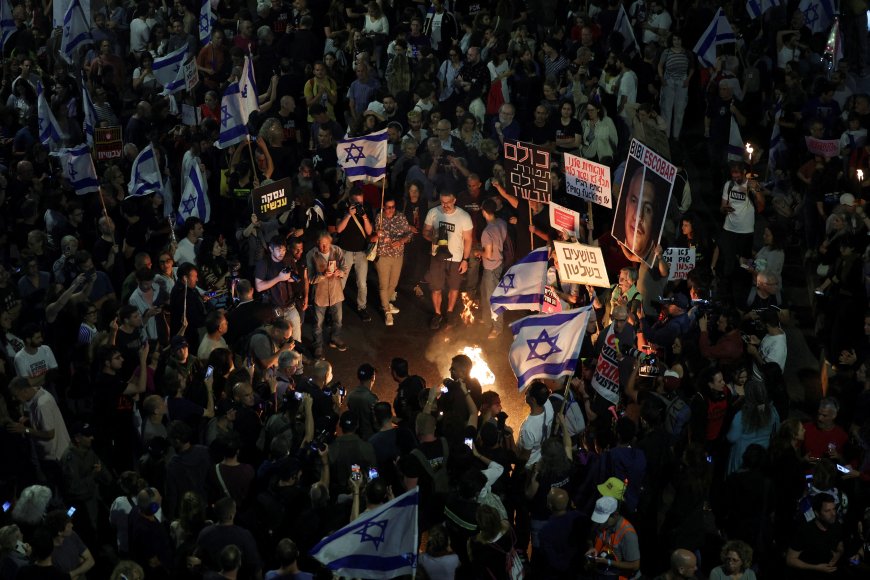Mass Protests in Tel Aviv Demand End to Gaza Conflict
Thousands of protesters demonstrated outside Israeli Prime Minister Benjamin Netanyahu's residence in Tel Aviv on Saturday night, reiterating their demands for an end to the war.

Thousands of protesters gathered outside Israeli Prime Minister Benjamin Netanyahu's residence in Tel Aviv on Saturday night, demanding an end to the ongoing war in Gaza. The demonstration, marked by significant public outcry, highlighted growing dissatisfaction with the current administration's handling of the conflict. According to the AP news agency, demonstrators blocked the Ra'anana intersection, calling for immediate early elections and the release of Israeli detainees held in Gaza. The protest signifies increasing pressure on the Israeli government to address the prolonged conflict that has exacerbated internal and external crises.
The Zionist Radio and Television Organization reported that the families of Israeli prisoners and soldiers killed in the Gaza Strip were among the most vocal at the protest. These families have demanded a cessation of hostilities within the framework of a prisoner exchange agreement with the resistance. They argue that continuing the war will only lead to more deaths among prisoners and soldiers.
The conflict in Gaza, which began over seven months ago, has seen extensive casualties and destruction, yet it remains unresolved. The prolonged warfare has led to widespread discontent and calls for a change in leadership. Demonstrators emphasized the urgency of their demands, chanting slogans and holding banners that called for peace and political reform.
Despite the government's efforts to manage the crisis, the situation in Gaza has not yielded any significant progress. The ongoing conflict has resulted in significant human and economic costs, straining Israel's resources and international relations.
This recent protest in Tel Aviv reflects a broader movement within Israeli society, calling for an end to the conflict and a reassessment of the government's strategies. As the pressure mounts, Netanyahu's administration faces increasing scrutiny from both domestic and international observers.
The demonstration in Tel Aviv is a potent reminder of the deep divisions and challenges facing Israel. As calls for peace grow louder, the government's ability to navigate this complex landscape will be critical in shaping the country's future and its relations with neighboring regions.













































